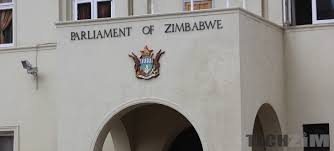ZwNews.com
The Parliamentary Legal Committee (PLC) has found some provisions of the Maintenance of Peace and Order (MoPO) Bill, unconstitutional and has since sent it back to the Parliament of Zimbabwe for considerations.
The Committee found more than ten clauses of the Bill to be in conflict with the Constitution of Zimbabwe.
PLC says (Clause 10) of the Bill that prohibits public gatherings in the vicinity of Parliament, courts and other protected areas is unconstitutional, as it would undermine the citizens’ right to petition parliament, as provided for in the Constitution. The Committee adds that parliament is a public institution open to members of public, though the clause allows demonstrations near parliament if the Speaker of Parliament gives written permission, the constitutional right to petition parliament should not be at the discretion of the Speaker or a senior police officer.
The committee also found clause 3 as in direct conflict with the Supreme Law. This clause declares senior police officer of every police district as the ‘regulating authority’ giving him/ her the power sanction or to stop a public demonstration from going ahead. PLC says the clause is in violation of the Constitution, in that it gives the regulating authority excessive powers to limit the citizens’ right of freedom of assembly and association.
The other clauses identified as problematic, include clause 4, which deals with the ‘carrying of dangerous weapons’ in public, this criminalises even the carrying home of a kitchen knife just purchased. The clause indicates that notices to that effect should be put in newspapers, radio or television, and that a person aggrieved by the order should lodge a complaint with the Ministers of Home Affairs.
But the committee says people from rural areas may not have access to newspapers, radio, or television transmission for them to learn about the prohibition orders, and also noted that the right of appeal to the Minister and not the courts is misguided and in violation of constitutional provisions.
Section 69 (3) of the Constitution guarantees access to the courts and not the Minister for the resolution of disputes.
Meanwhile, constitutional watchdog Veritas Zimbabwe has commended the PLC, for the findings, says the issues it raised are identical to the ones previously raised by the watchdog.
“It is to be hoped that the government will pay proper attention to the report and revise the Bill taking into account of the Committee’s valid objections.
“If not revised, the Bill will have a chilling effect on the freedom of expression, assembly and association, and the right to demonstrate, as provided for in the Constitution,” says the watchdog.
Veritas adds that the if the Bill is not revised, it will prompt a number of court cases challenging its constitutionality.
Be that as it may, the Bill received wide condemnations, when it was put to the public for debate, with many people saying it is the same old wine only being served in a new bottle. The public lambasted the Bill for being identical to the Public Order and Security Act, the Act it is purported to be replacing.













